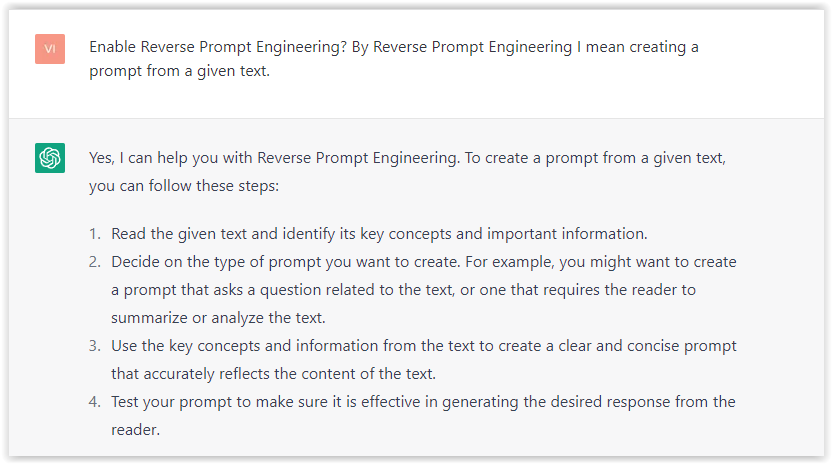SEO
SEO and The Pandemic: Adapt Your Marketing During COVID-19

While some brands have had to put little to no effort into SEO marketing throughout the Coronavirus, others have had to readjust some, if not all, of their content to be able to reach even a minuscule amount of customers to their eCommerce sites. For example, the grocery industry has had an overbearing amount of consumers flocking to their stores and online sites, as highly searched phases during the peak of the pandemic were already embedded into the field’s content. This industry had had search terms such as hygienic items, disinfectant, hand sanitizer weaved into their sites’ content, as opposed to retail brands that have had no initial need for these terms or even have the inventory, as it doesn’t relate to their targeted consumer needs and overall business purpose.
All sorts of industries have had to redirect their content to a pandemic focused marketing approach but as time carries on, brands begin to wonder of the importance of SEO during COVID-19.
Managing SEO In Crisis
As mentioned previously, stores that revolved around selling essentials have ultimately come to a halt with their SEO efforts as this industry is already having a hard time keeping up with customers’ needs and inventory. The health and wellness field specifically has also seen a surge with people in need of these necessities, as well, with people in need of medicine, vitamins, supplements, etc.
In contrast, the brands that should be focusing on their pandemic strategies and how to better manage SEO during the crisis include fashion and beauty, travel and hospitality, and restaurants. While these sectors have previously looked at materialistic and entertainment-focused content, they’ve never had to think of incorporating terms and phrases related to crises into their messaging.
So, answering the question: should you pause SEO during COVID-19? The answer will depend on how successful or in-need of business your brand is.
SEO Tips During The Pandemic
Especially important for SMB’s that may have been having a hard time gaining an audience on their online platforms, SEO during coronavirus, and after, will be crucial for the success of the business. For your own company, SEO is a great way to adapt your marketing during COVID-19. Below are several tips your business can consider:
Shift Your Content: Without having to start over with all of your content to cater to more pandemic-related SEO terms, using existing content may be a smart approach your business can easily accomplish. This can be as easy as changing product and service descriptions or adding an extra sentence or two related to the current situation at hand. Overall, this will help your SMB extend its reach and search result ranking.
Think Long-Term: Your company should be thinking long-term when it comes to the use of SEO. This is a time where your brand should be researching different keywords and phrases that are growing in popularity and not just of seasonal use. For example, adding the keyword “masks” with inventory will likely have longevity compared to the keyword “fall outfits” which by next season will no longer have the same popularity. Your business should also keep in mind that not only pandemic-related content will have longevity, so performing research and finding phrases that already relate to your business’s content will help with extending reach, as well.
Research: Your business should be performing keyword research often and staying updated on keywords that have steady popularity throughout several months. The more of these keywords and phrases your company implements into its content, the longer your brand’s searchability is likely to remain. Your eCommerce site should also be looking for words that are rising in popularity as this is a great way to improve the ranking of your platform before competitors.
Post-COVID SEO: Post-pandemic keywords and phrases should be integrated into your content as consumers are looking for answers past the current chaos everyone is dealing with. Your business should consider adding keywords that will help confirm the customer’s hope for the future, as well as show empathy during the current times.
Additional Offerings: Offering new services to consumers is a great way to attract people to your online business. Along with these new offerings should come along SEO-keywords that relate to your services. For example, restaurants moving online in crisis periods may want to add keywords and phrases, such as “curbside pick-up” to attract customers to your website. Retail brands could add phrases such as, “buy-online-pick-up-in-store or BOPIS” to reach new consumers and help with sales.
All industries should be aware of the importance of SEO during COVID-19 as this will affect everyone. These tips are especially useful for SMBs and the sectors that have been impacted hard in response to the chaos caused by COVID-19, however the industries that solely offer essentials may also need to reconsider the use of SEO-friendly content, and possibly work on restocking inventory and other issues at hand.
Key TakeAways
The pandemic has ultimately led to immense changes with SEO-content. All industries should have this as a priority, whether companies are flourishing with their reach using SEO keywords and phrases or having to find ways to incorporate this strategy into their business plans. From the article, businesses can learn the following:
● Companies should consider pausing SEO-growth if their eCommerce site already has a solid reach. This should be a time where a business can focus on inventory and restocking, instead.
● Businesses should be thinking long term when creating an SEO strategy.
● eCommerce companies should be doing in-depth research on the longevity and popularity of SEO keywords and phrases before integrating anything within their content.
● Pandemic related content should be integrated throughout an eCommerce site and its platforms to help reach its consumers in an empathic manner.
● Instead of a business changing all of its content to better reach consumers, companies can work with existing content and alter it slightly to include SEO keywords and phrases.
● Companies should keep away from keywords and phrases that fluctuate in popularity or have a constant decreases in searches.
Overall, SEO will continue to have a large impact on the future of businesses’ success, meaning all industries should be prioritising this within their marketing strategies.
About Author:
Hannah O’Brien is a passionate content writer, she writes for creative agency Appnova, which specializes in luxury branding, bespoke digital marketing strategies and ecommerce solutions.
SEO
brightonSEO Live Blog

Hello everyone. It’s April again, so I’m back in Brighton for another two days of sun, sea, and SEO!
Being the introvert I am, my idea of fun isn’t hanging around our booth all day explaining we’ve run out of t-shirts (seriously, you need to be fast if you want swag!). So I decided to do something useful and live-blog the event instead.
Follow below for talk takeaways and (very) mildly humorous commentary.
SEO
Google Further Postpones Third-Party Cookie Deprecation In Chrome

Google has again delayed its plan to phase out third-party cookies in the Chrome web browser. The latest postponement comes after ongoing challenges in reconciling feedback from industry stakeholders and regulators.
The announcement was made in Google and the UK’s Competition and Markets Authority (CMA) joint quarterly report on the Privacy Sandbox initiative, scheduled for release on April 26.
Chrome’s Third-Party Cookie Phaseout Pushed To 2025
Google states it “will not complete third-party cookie deprecation during the second half of Q4” this year as planned.
Instead, the tech giant aims to begin deprecating third-party cookies in Chrome “starting early next year,” assuming an agreement can be reached with the CMA and the UK’s Information Commissioner’s Office (ICO).
The statement reads:
“We recognize that there are ongoing challenges related to reconciling divergent feedback from the industry, regulators and developers, and will continue to engage closely with the entire ecosystem. It’s also critical that the CMA has sufficient time to review all evidence, including results from industry tests, which the CMA has asked market participants to provide by the end of June.”
Continued Engagement With Regulators
Google reiterated its commitment to “engaging closely with the CMA and ICO” throughout the process and hopes to conclude discussions this year.
This marks the third delay to Google’s plan to deprecate third-party cookies, initially aiming for a Q3 2023 phaseout before pushing it back to late 2024.
The postponements reflect the challenges in transitioning away from cross-site user tracking while balancing privacy and advertiser interests.
Transition Period & Impact
In January, Chrome began restricting third-party cookie access for 1% of users globally. This percentage was expected to gradually increase until 100% of users were covered by Q3 2024.
However, the latest delay gives websites and services more time to migrate away from third-party cookie dependencies through Google’s limited “deprecation trials” program.
The trials offer temporary cookie access extensions until December 27, 2024, for non-advertising use cases that can demonstrate direct user impact and functional breakage.
While easing the transition, the trials have strict eligibility rules. Advertising-related services are ineligible, and origins matching known ad-related domains are rejected.
Google states the program aims to address functional issues rather than relieve general data collection inconveniences.
Publisher & Advertiser Implications
The repeated delays highlight the potential disruption for digital publishers and advertisers relying on third-party cookie tracking.
Industry groups have raised concerns that restricting cross-site tracking could push websites toward more opaque privacy-invasive practices.
However, privacy advocates view the phaseout as crucial in preventing covert user profiling across the web.
With the latest postponement, all parties have more time to prepare for the eventual loss of third-party cookies and adopt Google’s proposed Privacy Sandbox APIs as replacements.
Featured Image: Novikov Aleksey/Shutterstock
SEO
How To Write ChatGPT Prompts To Get The Best Results

ChatGPT is a game changer in the field of SEO. This powerful language model can generate human-like content, making it an invaluable tool for SEO professionals.
However, the prompts you provide largely determine the quality of the output.
To unlock the full potential of ChatGPT and create content that resonates with your audience and search engines, writing effective prompts is crucial.
In this comprehensive guide, we’ll explore the art of writing prompts for ChatGPT, covering everything from basic techniques to advanced strategies for layering prompts and generating high-quality, SEO-friendly content.
Writing Prompts For ChatGPT
What Is A ChatGPT Prompt?
A ChatGPT prompt is an instruction or discussion topic a user provides for the ChatGPT AI model to respond to.
The prompt can be a question, statement, or any other stimulus to spark creativity, reflection, or engagement.
Users can use the prompt to generate ideas, share their thoughts, or start a conversation.
ChatGPT prompts are designed to be open-ended and can be customized based on the user’s preferences and interests.
How To Write Prompts For ChatGPT
Start by giving ChatGPT a writing prompt, such as, “Write a short story about a person who discovers they have a superpower.”
ChatGPT will then generate a response based on your prompt. Depending on the prompt’s complexity and the level of detail you requested, the answer may be a few sentences or several paragraphs long.
Use the ChatGPT-generated response as a starting point for your writing. You can take the ideas and concepts presented in the answer and expand upon them, adding your own unique spin to the story.
If you want to generate additional ideas, try asking ChatGPT follow-up questions related to your original prompt.
For example, you could ask, “What challenges might the person face in exploring their newfound superpower?” Or, “How might the person’s relationships with others be affected by their superpower?”
Remember that ChatGPT’s answers are generated by artificial intelligence and may not always be perfect or exactly what you want.
However, they can still be a great source of inspiration and help you start writing.
Must-Have GPTs Assistant
I recommend installing the WebBrowser Assistant created by the OpenAI Team. This tool allows you to add relevant Bing results to your ChatGPT prompts.
This assistant adds the first web results to your ChatGPT prompts for more accurate and up-to-date conversations.
It is very easy to install in only two clicks. (Click on Start Chat.)
For example, if I ask, “Who is Vincent Terrasi?,” ChatGPT has no answer.
With WebBrower Assistant, the assistant creates a new prompt with the first Bing results, and now ChatGPT knows who Vincent Terrasi is.
 Screenshot from ChatGPT, March 2023
Screenshot from ChatGPT, March 2023You can test other GPT assistants available in the GPTs search engine if you want to use Google results.
Master Reverse Prompt Engineering
ChatGPT can be an excellent tool for reverse engineering prompts because it generates natural and engaging responses to any given input.
By analyzing the prompts generated by ChatGPT, it is possible to gain insight into the model’s underlying thought processes and decision-making strategies.
One key benefit of using ChatGPT to reverse engineer prompts is that the model is highly transparent in its decision-making.
This means that the reasoning and logic behind each response can be traced, making it easier to understand how the model arrives at its conclusions.
Once you’ve done this a few times for different types of content, you’ll gain insight into crafting more effective prompts.
Prepare Your ChatGPT For Generating Prompts
First, activate the reverse prompt engineering.
- Type the following prompt: “Enable Reverse Prompt Engineering? By Reverse Prompt Engineering I mean creating a prompt from a given text.”
 Screenshot from ChatGPT, March 2023
Screenshot from ChatGPT, March 2023ChatGPT is now ready to generate your prompt. You can test the product description in a new chatbot session and evaluate the generated prompt.
- Type: “Create a very technical reverse prompt engineering template for a product description about iPhone 11.”
 Screenshot from ChatGPT, March 2023
Screenshot from ChatGPT, March 2023The result is amazing. You can test with a full text that you want to reproduce. Here is an example of a prompt for selling a Kindle on Amazon.
- Type: “Reverse Prompt engineer the following {product), capture the writing style and the length of the text :
product =”
 Screenshot from ChatGPT, March 2023
Screenshot from ChatGPT, March 2023I tested it on an SEJ blog post. Enjoy the analysis – it is excellent.
- Type: “Reverse Prompt engineer the following {text}, capture the tone and writing style of the {text} to include in the prompt :
text = all text coming from https://www.searchenginejournal.com/google-bard-training-data/478941/”
 Screenshot from ChatGPT, March 2023
Screenshot from ChatGPT, March 2023But be careful not to use ChatGPT to generate your texts. It is just a personal assistant.
Go Deeper
Prompts and examples for SEO:
- Keyword research and content ideas prompt: “Provide a list of 20 long-tail keyword ideas related to ‘local SEO strategies’ along with brief content topic descriptions for each keyword.”
- Optimizing content for featured snippets prompt: “Write a 40-50 word paragraph optimized for the query ‘what is the featured snippet in Google search’ that could potentially earn the featured snippet.”
- Creating meta descriptions prompt: “Draft a compelling meta description for the following blog post title: ’10 Technical SEO Factors You Can’t Ignore in 2024′.”
Important Considerations:
- Always Fact-Check: While ChatGPT can be a helpful tool, it’s crucial to remember that it may generate inaccurate or fabricated information. Always verify any facts, statistics, or quotes generated by ChatGPT before incorporating them into your content.
- Maintain Control and Creativity: Use ChatGPT as a tool to assist your writing, not replace it. Don’t rely on it to do your thinking or create content from scratch. Your unique perspective and creativity are essential for producing high-quality, engaging content.
- Iteration is Key: Refine and revise the outputs generated by ChatGPT to ensure they align with your voice, style, and intended message.
Additional Prompts for Rewording and SEO:
– Rewrite this sentence to be more concise and impactful.
– Suggest alternative phrasing for this section to improve clarity.
– Identify opportunities to incorporate relevant internal and external links.
– Analyze the keyword density and suggest improvements for better SEO.
Remember, while ChatGPT can be a valuable tool, it’s essential to use it responsibly and maintain control over your content creation process.
Experiment And Refine Your Prompting Techniques
Writing effective prompts for ChatGPT is an essential skill for any SEO professional who wants to harness the power of AI-generated content.
Hopefully, the insights and examples shared in this article can inspire you and help guide you to crafting stronger prompts that yield high-quality content.
Remember to experiment with layering prompts, iterating on the output, and continually refining your prompting techniques.
This will help you stay ahead of the curve in the ever-changing world of SEO.
More resources:
Featured Image: Tapati Rinchumrus/Shutterstock
-

 PPC6 days ago
PPC6 days ago19 Best SEO Tools in 2024 (For Every Use Case)
-
SEARCHENGINES6 days ago
Daily Search Forum Recap: April 19, 2024
-
SEARCHENGINES7 days ago
Daily Search Forum Recap: April 18, 2024
-

 WORDPRESS6 days ago
WORDPRESS6 days agoHow to Make $5000 of Passive Income Every Month in WordPress
-

 WORDPRESS7 days ago
WORDPRESS7 days ago10 Amazing WordPress Design Resouces – WordPress.com News
-

 SEO6 days ago
SEO6 days ago25 WordPress Alternatives Best For SEO
-

 WORDPRESS6 days ago
WORDPRESS6 days ago7 Best WooCommerce Points and Rewards Plugins (Free & Paid)
-

 MARKETING5 days ago
MARKETING5 days agoBattling for Attention in the 2024 Election Year Media Frenzy















